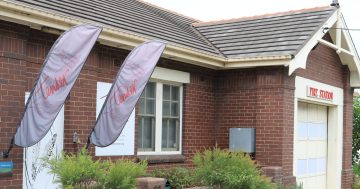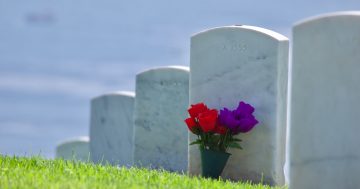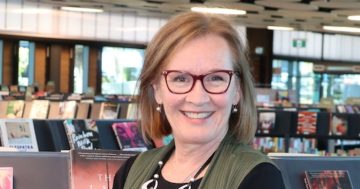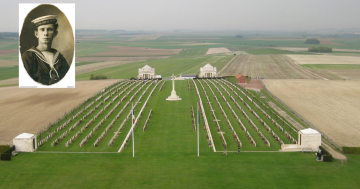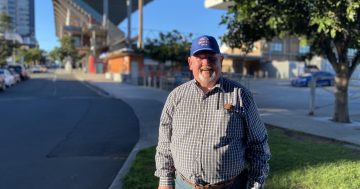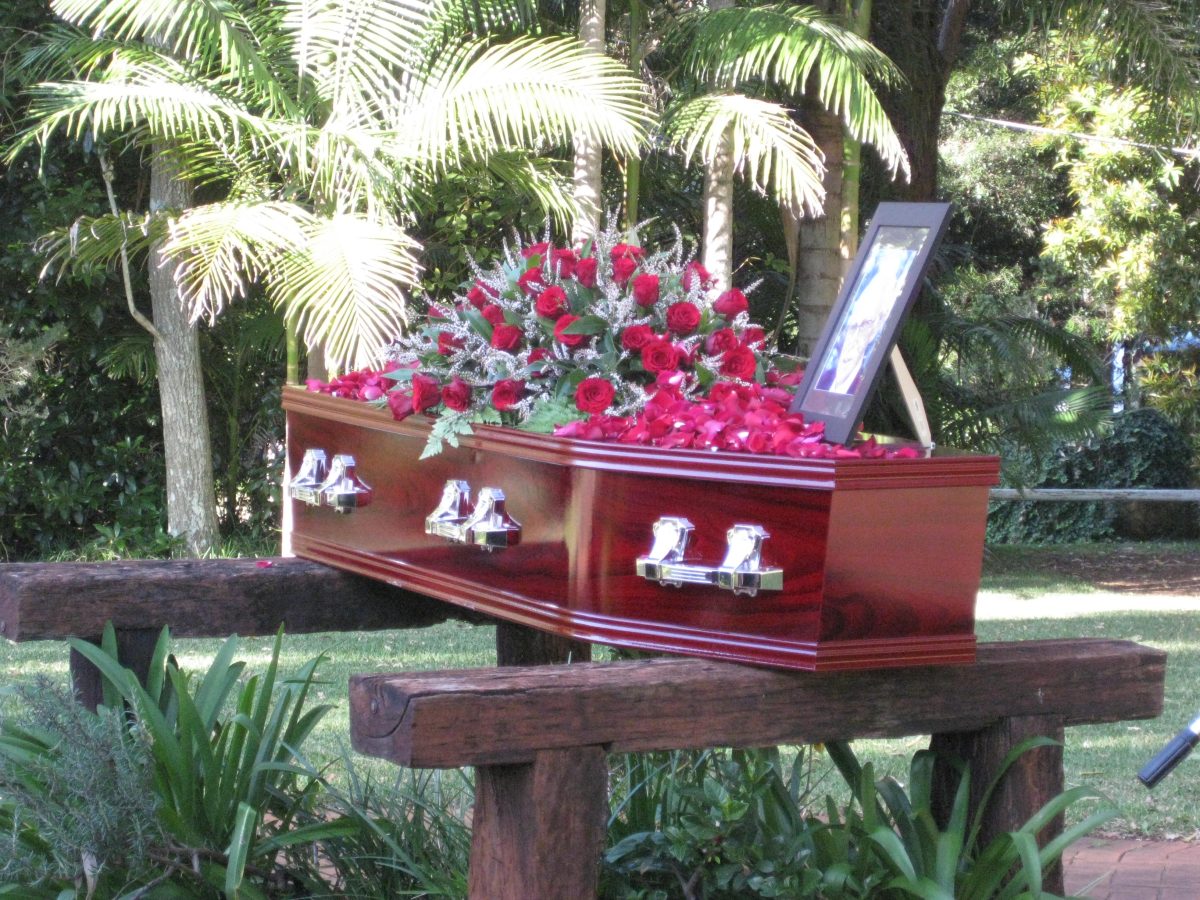
Dad’s funeral was just as he had wanted – in the outdoors on a Friday afternoon. Photo: Jen White.
I went to a family funeral this week and, as is the case with funerals, it reminded me of other loved ones we’ve lost, especially my dear old dad.
In a couple of weeks it will be 15 years since we said our final goodbyes to a wonderful father, father-in-law and grandfather.
Just a few days before Dad’s anniversary is the annual Dying to Know Day, on 8 August.
Now in its 12th year, the aim of the day is to break down the stigma and sense of awkwardness associated with conversations about death, dying and grief. It encourages people to discuss their wishes for their end-of-life care, how and where they want to spend their final weeks or days and plan for their funeral.
I get that it’s not easy to talk about death, especially the death of those closest to you and those you simply can’t imagine living without. But my experience talking with Dad about his death remains one of the most cherished times of my life.
Dad and I had a pretty typical father-daughter relationship when I was a teenager. Our arguments often ended with me flouncing off, slamming my bedroom door and playing loud, tragic ’70s songs on my record player, especially ones of which Dad disapproved.
I left home at 18 to find a job in the Big Smoke and with the gift of distance, I discovered dear old dad actually wasn’t so bad.
His occasional work trips to Sydney became treasured time together – he introduced me to rough red wine, port and the vagaries of horse racing, while I introduced him to my husband-to-be, who became the son Dad had always wanted.
Daddo gave me many gifts over the years, but the one I will always treasure and the most priceless of all was the three weeks we spent together not long before he died, just shy of his 69th birthday.
We all knew Dad was dying. He had been diagnosed with pulmonary thrombosis and it was one of the cruellest diseases that could afflict a man who had never smoked, who played A-grade squash until well into his 40s and who was otherwise a fit 60-something when diagnosed.
Dad was only a few weeks from selling the newsagency he and his partner owned when his health rapidly started to decline.
The newsagency was an impossible burden. They were working six and a half long days a week and when they lost their paper boy, Dad took on the home deliveries – with his oxygen bottle on the passenger seat.
I realised just how bad things were when Dad admitted he “sometimes got a bit dizzy” during his 15-minute drive to work. And when he could only muster a weak argument against me flying home to be with him, I knew things were really serious.
The first week was hell, but with the invaluable, caring help of the local palliative care team, his doctor and the wonderful neighbouring chemist, his cough became less severe, he had a bit more energy and was eating better.
Some days it was just all too much for him and he’d stay in bed dozing. It was during those times that we talked openly and honestly about his final weeks and days. His partner didn’t want to face the fact Dad was dying and avoided talking about it.
Being a typical first-born – and journalist – it seemed natural that I would write Dad’s eulogy. In fact, I’d written the bulk of it even before I arrived to look after him – there were lots of things I couldn’t remember, or people I knew should be mentioned, and the only person who could give me that information was Dad.
I was a bit tentative when I first raised the eulogy with Dad, but I told him I wanted him to hear it because it seemed a shame that the greatest tribute you can pay a person is often (usually) given when they can’t hear it.
It was cathartic for us both – we laughed, we cried. Dad told me I couldn’t include certain things and I told him to bugger off – he wasn’t going to be around to know whether I included it or not!
After I finished, he shyly handed me a piece of paper and said: “Actually, I jotted a few things down just in case someone wanted to say a few words.”
My sister flew up and the three of us shared some really special, unforgettable moments. Dad made it clear that he didn’t want to die at home because he was worried how much it would upset his partner and he was even more adamant that he didn’t want my sister and me to be there when he died.
Two months later the old bugger did it his way. He died in hospital only a few hours before my sister and I were due to fly in.
His funeral was exactly what he wanted and how we had planned it together. It was held in glorious sunshine in an outdoor chapel on a Friday. (He didn’t care what day of the week he died, but the funeral had to be on a Friday because that’s POET’S Day – Piss Off Early, Tomorrow’s Saturday.)
His family and friends offered spontaneous eulogies, his grandchildren shared the readings he had chosen and his coffin was carried out to the stirring sound of his beloved 1812 Overture.
Knowing that it was just what Dad had wanted didn’t necessarily make the day any easier, but it did mean we didn’t have to try to second-guess his wishes.
That time with Dad taught me how important, special and even comforting it is to be able to have an open conversation with our loved ones about how they wish to live out the end of their lives and how they would like to be farewelled.
It gives those who are terminally ill the power and control over how they want to live out their days.
It gives them and their families a chance to say the things they want to say before it’s too late.
It’s a time to cherish, to remember, to share, to love. It’s a conversation you may well regret not having, but I can assure you, it’s a conversation you will never forget.
RIP Robert (Bob) George Sydenham, 1940-2009









